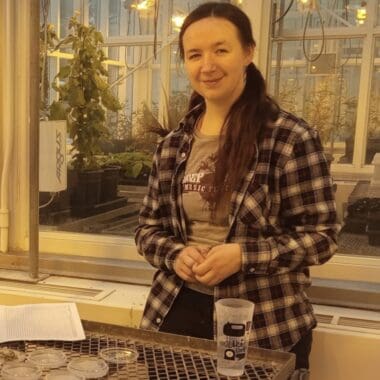
As extreme weather events become increasingly common, this experimental procedure hopes to determine how extreme hot, cold, or wildly fluctuating temperatures in spring will affect plant growth and the risk levels for plant species in the future.
This research is part of Dr. Zoe Panchen’s program examining how plants respond to environmental change. Dr. Panchen is a new assistant professor in the Department of Biology.
Objectives
To determine whether temperature extremes during the first days of germination will affect the germination rate and seedling vigour while using species that are expected to have good germination.
To determine the best way to do these experiments in the future:
•Phytotron vs growth chamber (precision and accuracy)
•Rate for recording the temperature and humidity
•Best type of sensors for the experiment
•Whether the Procedure and length of the treatments are effective in showing a significant difference in germination rate and seedling development
Tegan McMahon
Tegan is a third year Biology and Chemistry double major with “an interest in the wonders of plants and what they can do, both as part of the ecosystem and for humans”. Tegan knows plants are her passion and plans to continue studying them throughout her life. In the short term, she plans to turn this proof-of-concept project into an honours project as part of Dr. Zoe Panchen’s lab.
Tegan says, “with climate change becoming an ever-present fact of life and bringing with it highly variable temperatures and weather patterns, I believe it is incredibly important to have an understanding of how this will affect plants and ecosystems overall”.


 Acadia University
Acadia University